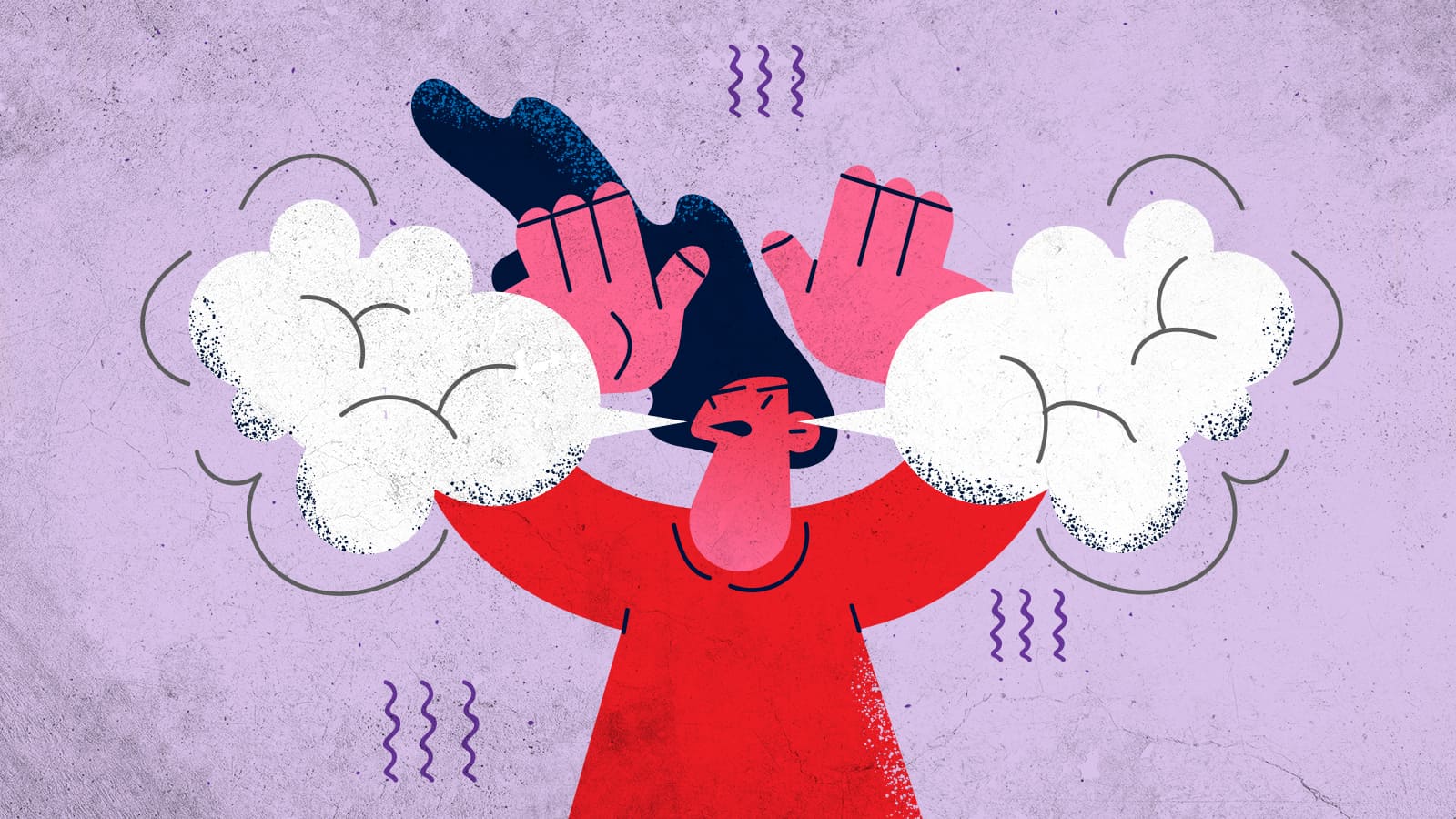Remember the wicked queen in the classic story of Snow White? When her mirror said Snow White was more beautiful, the queen became jealous. This story may be a fairy tale, but it’s a classic case of narcissistic rage that’s a reality.
On the surface, narcissists seem calm, controlled, and self-centered. It’s a ruse to hide their internal insecurities and anger. Anyone or anything that threatens them will ignite their wrath.
Often, the slightest things make them explode, as managing anger doesn’t come easy. A misinterpreted word or perceived slight is all it takes to send them into a frenzy. They are at boiling point in an instant before you know what happened.
Six Telling Behaviors that Predict Narcissistic Rage
The more you understand this personality and the disorder, the better prepared you are to deal with them, and once set off, they can’t control the rage. Most narcissists have comparable triggers that can make them lose their temper. Here are six behavior patterns and possible scenarios to consider.
1. Disproportionate Reactions
Given the right stressor, narcissistic rage can be set off at any time. You’ll notice that these personalities often have a fiery fit that’s blown way out of proportion. They can get so angry that it seems they are fueled by hate.
Example: You ordered a pair of shoes for them online, and the shoes that arrived were the wrong size. It’s an easy fix by returning the package to get the correct size. However, this person goes into a harsh tirade about how careless you are and that the online company is incompetent.
2. The Short-lived Storm
Although narcissistic rage can explode out of nowhere, these episodes are often short-lived. The eruption can cease almost as quickly as it started, and the toxic person may act like it never happened. They may try to shift the blame on you for making them boil with rage.
Example: The two of you are enjoying what you hoped would be a pleasant dinner at a new restaurant. The romantic scenario grinds to a halt when your narcissistic partner rants and raves at the server for putting onions on their sandwich. After embarrassing you, the server, and the other diners, they remove the onions and eat as if nothing happened.
3. A Volatile Situation on Hand
Narcissists use these irrational outbursts to control others. They also use narcissistic rage to discharge their anxiety and put others on the defensive. What’s more, their wrath can escalate to verbal and physical violence.
A classic example of a selfish fury turning violent is road rage. While not all road rages are linked with a narcissistic personality, these eruptions are typical. Not only can they explode in a litany of verbal abuse, but they can threaten the offensive driver with physical harm.
4. When the Table Turns
Some of the worst temper triggers for narcissists are when they perceive humiliation, confrontation, or loss of control. In extreme cases, they can turn their ire on themselves and cause self-harm. Since they adore themselves above all others, self-harm can be unintentional.
Example: You’ve decided that you want to sever a romantic relationship with your narcissistic mate. Instead of giving in to their manipulation, you take a stand for yourself. Driving away in a fury, they total their car due to reckless driving.
5. The Ignored Narcissist
There’s nothing a narcissist craves more than the limelight. They are on their best behavior when being showered with praise and attention. If they perceive that anyone’s light is a tad bit brighter, that person will face their wrath.
It’s almost like a toddler having a temper tantrum over a toy in the department store. The mood may go from grumbling and whining to a full-blown fit. Narcissists demand all the attention or else.
Example: You and your partner have decided to make it official and get married. Everyone is thrilled for you except the narcissist who’s supposed to be your best friend. Instead of gladly helping you plan your wedding, they pout, whine, and are mad at you because they want the attention.
6. Called on the Carpet
You may avoid the narcissist’s ire if you allow them to control you and be your cheerleader. The minute you confront them about a lie or criticize them in the least, you’re in their verbal crosshairs. They use unbridled anger to cope with their anxiety of losing control.
They guard their exaggerated self-image fiercely and will lash out if they think you tarnish it. Even if your criticism is loving and constructive or they’ve overstepped their boundaries, their temper will flare. Narcissists often refuse to accept any shortcomings or own up to mistakes.
Example: A narcissistic coworker calls you home to gripe about office politics. You’ve expressly told them you’re not interested in these gossip games, especially in your private time. After you confront their behavior, they get angry and spread vicious rumors about you in the office.
How to Avoid Narcissistic Rage
It can be physically, mentally, and emotionally draining to cope with a narcissist and their rage. The good news is that you needn’t be a target of these volatile temper tantrums. Here are a few ways to avoid explosive drama.
1. Get Out of the Way of Narcissistic Rage
According to an article by the Mayo Clinic, narcissistic personalities usually lack empathy and have problems controlling emotions and actions. If they turn their rage on you, create some distance from them. Go into another room or go outside if their anger turns violent.
2. Keep Your Cool
You’re feeding the narcissist’s ego if you react out of anger or frustration. They want to see you feel uncomfortable because it means they’re in control. Do your best to take a breath, be calm, and refuse to participate in their antics.
Try something like meditation or other relaxation techniques. Avoid the urge to yell or fight fire with fire. If you control your rage, you’re not giving them any ammunition.
3. Take a Break
Brief pauses and space are essential for managing anger outbursts from abusive narcissists. When you’re in a confrontation with this person, pause and take a breath before saying anything. They’ll often finish their rants, and you can walk the other way for some space.
4. Realize You Are Not Responsible for the Narcissistic Rage
Furious tirades of selfish people are often peppered with personal insults and blame-shifting. It’s important to realize that they’re the person with the issue, not you. A narcissistic personality disorder is usually established at a young age, and there’s nothing you did to take responsibility for it.
5. Establish Boundaries
There are many stable times that you can reason with a narcissist. Consider a neutral discussion about how you expect to be treated. If they cross a line and blow their top, you’ll walk away and not discuss it until they can do it calmly.
6. Give Consequences for Their Narcissistic Rage
Unfortunately, narcissists consider others weak and unable to take up for themselves. They may listen to your boundaries, but these are only words unless you act. If you tell them the consequences for disrespecting your limits, follow through and send them a message.
Other Narcissistic Rage Situations to Consider
Just because you are paid to do a job doesn’t mean anyone gets to abuse you, whether boss or coworker. If it’s a coworker, tell them you won’t tolerate their abusive outbursts. You may consider talking to a higher authority if they can’t respect your boundaries.
What if the narcissist is your supervisor? You can still go over their heads to human resources if necessary. However, the situation may be unfixable, and you may consider getting another job.
The Raging Stranger
Narcissistic temper flares can be especially frightening if you don’t know the person. You never know if this ranting stranger is going to turn violent. Don’t engage with their fury; you must escape them.
You should call 911 if you feel threatened or like the person has become dangerous enough to hurt themselves or someone else.
The Toxic Family Member
Blood may be thicker than water, but it doesn’t entitle any toxic relative to abuse you. Some relatives you must love from a distance, even parents, siblings, or adult children. Stick to your boundaries and refuse to be part of their anger-infused situations.
When Enough is Enough
Narcissistic temper flares usually include abusive language and often become violent. Your safety and peace of mind are more important than your ego. You needn’t be the object of their abuse and can get help if necessary.
Final Thoughts on Identifying Narcissistic Rage and Avoiding It
Narcissists have a personality disorder that affects all personal and professional relationships. They may believe that everything about them is dynamite, but you’ll soon learn it’s the explosive kind. You’ll either learn techniques to help during these times, or you will steer clear of their fury until they get the help they need.



















